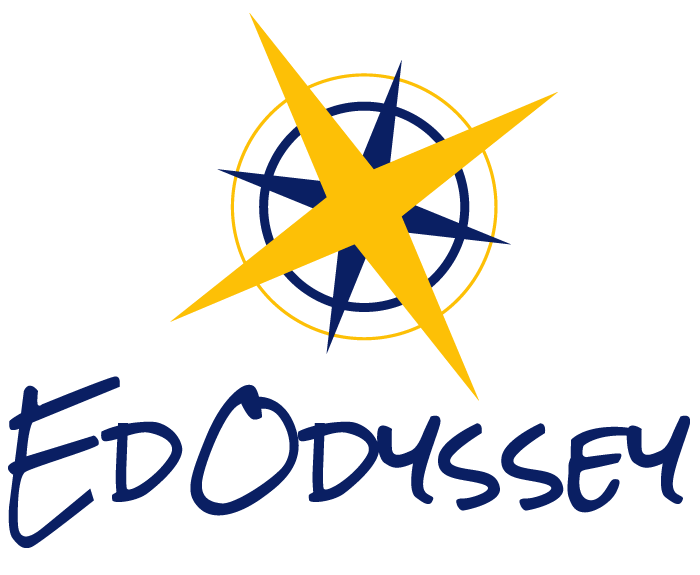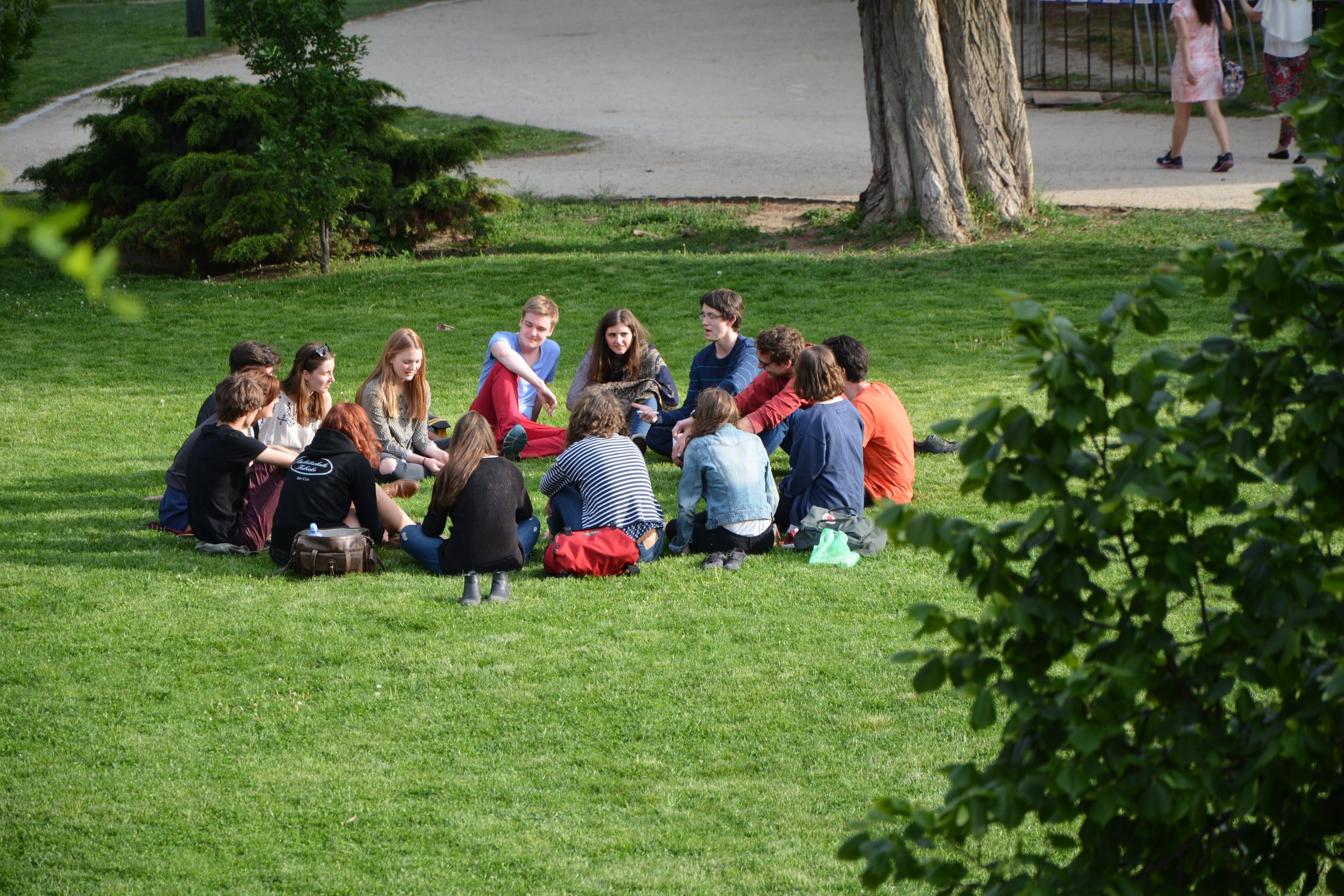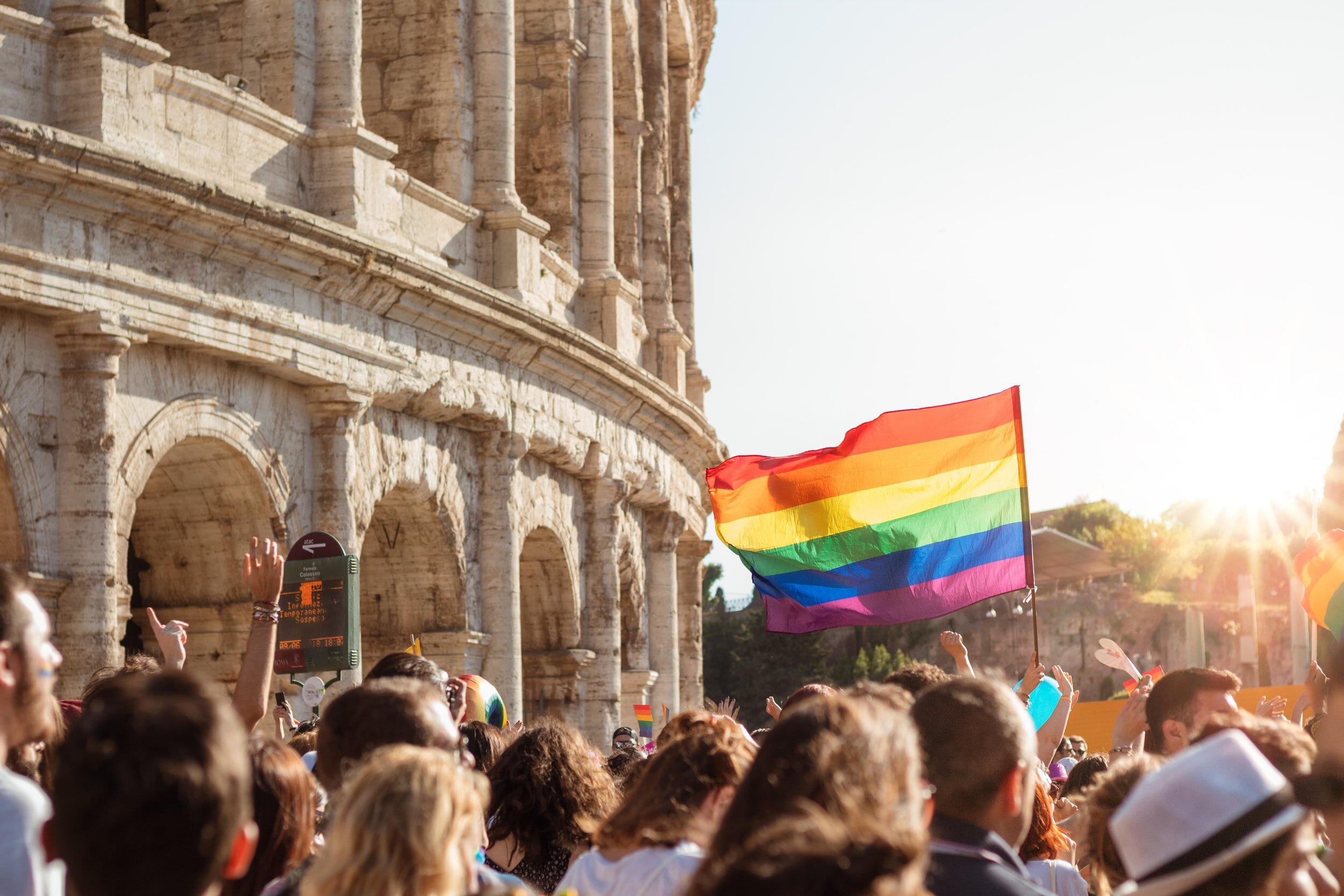Supporting LGBTQ+ Study Abroad Students: Questions and Resources
Please note that in this blog, we often use the plural “they/them/theirs” when referring to all prospective study abroad students.
LGBTQ+ students who go abroad face questions when evaluating study abroad options and opportunities. Before considering a study abroad experience, each student should consider how his/her/their program prospects will support him/her/them throughout his/her/their international experience experience.
Students will confront questions throughout their experience abroad, and the questions to support each of them during pre-departure and throughout their respective experience abroad below:
PRONOUNS: How do students identify and what pronouns do they use?
The way that students see themselves and their identity matter to us. Our team members identify their own pronouns in their emails. All of our study abroad students are encouraged to share their own in their emails as well so everyone feels comfortable with sharing their identity.
COMING OUT: Do students want to share their identity as a member of the LGBTQ+ community? How can students go about doing this?
When it comes to the identity of our students, who they are, and how each of them see themselves in the world, they will each have a dedicated local in-country team who wants to learn about each student to help him/her/them to embrace his/her/their identity.
Students are encouraged at any point during our pre-departure or on the ground with one of our EdOdyssey team members to come out if they choose to do so.
REFLECTIONS: When will students have a chance to express themselves and identity during their program?
During our short-term study abroad programs and our excursions, we have reflections at the end of most daily meet ups and at the end of each day during excursions to share thoughts and unpack feelings about what we’ve learned.
These reflections create a safe space that allows each student to share their experiences based on their identity. Every student is welcome to share as much or as little as they’d like!
LIVING SITUATION: Do students want to come out to their roommates and/or homestay family?
Our local team encourages students to embrace who they are, and if a student decides to come out, then students are welcome share that with our team so we can support it accordingly.
For our accommodations, we offer different types of lodging depending on the different programs that we offer for international programs so see which one is most applicable to you below:
Semester Programs (Dorms) - As a part of your semester study abroad living situation, all students living in dorm-style housing will fill out a roommate matching survey. Our local team will find the best roommate possible based on our roommate matching criteria.
Semester/Short-Term Programs (Homestays) - If you have a homestay as a part of your program, your local in-country team will support you to come out to your homestay family. Our team members can help facilitate conversations to allow students to speak in their native language or provide students with tips on how to approach the conversation if they prefer to engage their homestay family directly.
Short-Term Programs (Hotels) - If you stay in a hotel, or other type of accommodation such as as hostel as indicated in your program itinerary, you’ll be matched with a fellow classmate based on sex.
Generally speaking, we welcome feedback and input from our US-based partner institutions to support us in finding the best housing/homestay match possible for our students.
LGBTQ+ Community Abroad: Do students wish to be part of a supportive LGBTIQ+ community abroad? Are there LGBTIQ+ organizations on their host campus or in the community?
If students would like to share your experiences with fellow study abroad classmates as a group or other individuals, please contact your in-country coordinator to support.
As an organization, we encourage open communication between our participants, our local team members, and partners to create an environment that facilitates learning, mutual respect and understanding.
HEALTH & SAFETY: What if a student doesn’t feel safe sharing certain details about their identity? What if I feel that a participant feels that they are a victim of discrimination?
If any student(s) encounter challenges, or that he/she/they are a victim of an aggression (physical or psychological), our local teams will provide him/her/they with help, guidance and facilitate any additional professional support, if applicable.
Our team provides 24/7 Emergency Health & Safety support throughout the duration of every student’s EdOdyssey experience. Students are provided with health and safety contact numbers to our team and other important local contact numbers to see to student health and safety.
When it comes to identity-focused questions, our organization encourages all of our participants to share as much or as little as they’d like. Our local team will always have certain emergency contact and personal information to help ensure student health and safety abroad.
LAWS & NORMS: What are laws and cultural norms surrounding relationships and dating in the LGBTQ+ community where students are studying abroad?
Throughout the pre-departure process and in-country experience, each student receives on-going advising with our local team. During pre-departure advising, study abroad participants have a time to ask questions, request details and have an opportunity to engage in discussion with our team on what it’s like to build friendships and connections abroad.
Each country and culture has different social expectations, and as a part of our semester programs, our local teams provide students with a detailed handbook. This resource shares information and tools regarding cultural insights and norms, in addition to key 24/7 emergency local support numbers.
At no point will any student be asked to disclose personal information, relationship statuses, gender identities or other personal information not relevant to details EdOdyssey teams for reservations or not related to supporting health and safety of students.
DOCUMENTATION: If the gender and identity of a student is different from the sex listed in legal documents, or if a student is in the process of transitioning, what types of obstacles potentially face with travel, immigration, and documents?
As a part of all of our programs, if visa processing is required, our local team will help provide support. As each participant in our program fills out paperwork, he/she/they will have the guidance in filling out any necessary documents for academic coursework and if any other relevant relevant paperwork to the experience abroad.
STUDY ABROAD IN SICILY AND FLORENCE: Is Italy considered an LGBTQ+ friendly country?
Since 1861, Italy has been one of the European countries with a pretty progressive legislation for promoting and protecting the inclusivity of gender. At the same time, there are some areas of Italy where discrimination continues to have a presence due to cultural factors. In particular, some of the main reasons why Italy has experienced some reluctance to embrace diversity can be attributed to some strong gender stereotypes due to a mixture of deeply rooted patriarchal and Catholic culture.
Intrepid Travel EU shares some additional insights into Italian culture as it relates to the LGBTQ+ community:
“Italy is largely accepting and welcoming of those who identify on the LGBTQIA+ spectrum. Travelers visiting high-touristed areas such as Milan, Venice, Florence and Rome should have no problem in expressing themselves and enjoying a hassle-free holiday.”
“LGBT couples should have no issues expressing themselves in a respectful way when in public. In more rural and regional areas, overt displays of affection can attract negative attention, as smaller towns tend to be more conservative and less accepting. Homosexuality is much more accepted in the north than the south; however, tourist hotspots, such as Capri and Taormina in Sicily, are well-known as LGBT-friendly”.
In Florence, one of our study abroad semester locations, there is a branch of ArciGay that identifies itself as the leading Italian non-profit organization for the LGBTQI+ community, which recently opened its new headquarters this past June 2021.
Most importantly, our team in Italy and local partners are happy to support students and help facilitate communication if students have any questions or need more information.
STUDY ABROAD IN LIMA: Is Peru classified as a LGBTQ+ friendly country?
It is inevitable to mention that this society remains conservative and sometimes eclectic when discussing the rights of people in the LGBTQ+ community. According to the 2019 Periodic Risk Intelligence and Security Monitor (PRISM) Executive Summary, Peru is ranked as one of sixty-six countries ranked as moderate in terms of risk ratings and trend analyses. As one of major South American cities, Lima has a diverse mix of ethnicities and nationalities with people coming from different parts of the world.
However, Peru as a country maintains its strong conservative, Catholic traditions and continues to work toward providing more equal opportunities for its LGBTQ+ community but the progress has been slow moving. Over the last decades and years, Peru has taken important steps concerning this issue and is increasingly open and inclusive. Their Peruvian Congress has had openly lesbian and gay members who work to expand access to rights in the country, but continue to face opposition in passing and ratifying laws to recognize same-sex marriage and laws condemning forms of discrimination against members of the LGBTQ+ community.
At EdOdyssey, we have hosted student abroad alumni and interns from the LGBTQ+ community who have expressed their love for the Peruvian culture. Please see our post about our study abroad alumnae, Johanna M., who shares her experience in Lima, Peru.
LGBTQ+ RESOURCES
Please take a look at the materials that provide additional insights in how other organizations, institutions, and their members support the LGBTQ+ community as well below:
Arcigay Firenze: Learn more about this Italian non-profit that supports the LGBTQ+ community through advocacy on issues facing its members around Italy.
The Lesbian, Gay, Bisexual, & Transgender U.S. Peace Corps Alumni: Gain insights into LGBTIQ+ individuals who served as Peace Corps Volunteers abroad, including information about their experiences abroad.
The International Gay and Lesbian Human Rights Commission: Shares information about human rights campaigns related specific countries around the world regarding sexual orientation, gender identity, and gender expression.
LGBT Student Guide for Education Abroad: Provides insights, resources and materials from a University of South Florida undergrad perspective.
LGBT Travel Information: Explore US State Department resources and materials that provide the LGBTQ+ community with information with information to know before going abroad.
National Center for Transgender Equality: Provides transgender people with advice on how to navigate air travel.
International Gay and Lesbian Travel Association connects and educates LGBT travelers and the businesses that welcome and support them along the way. All members can customize their travel experience and share it with others.
Out Traveler: Learn more about LGBT-focused locations and events.
The International Lesbian, Gay, Bisexual, Trans, and Intersex Association: Shows research related to legislation and laws specific to gender expression/identity and sexual orientation.
Is Italy LGBTQIA+ friendly?: Read more from Intreprid Travel EU about their insights into living in Italy as a part of the LBGTQ+ community.
The Fund for Education Abroad: Providing LGBTQ+ students studying abroad an opportunity to access additional funds through their Rainbow Scholarship.
We want to thank the University of Denver for providing us some inspiration, resources and information from their Inclusiveness Abroad Page!










